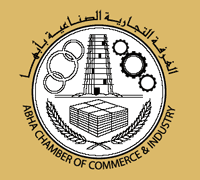 On Behalf of 
Business & Finance Club - Riyadh - Oil & Gas: On the banks of the sparkling green Chicago River, overlooking the vast expanse of Lake Michigan, the Sheraton Towers Hotel, venue of the first Saudi-American Business Opportunity Forum, was literally bursting at the seams and the action was as much in the corridors and lobbies as in the meeting halls.
In the lull between plenary sessions, in harmonious counterpart to official presentations, friends and colleagues gathered, relationships were forged or renewed, all in an atmosphere of palpable excitement. These spontaneous exchanges were not a distraction from formal program but rather the embodiment of the forum's primary theme: The commitment to a vital and enduring partnership between the two countries.
A notable aspect of the event was the turnout: over 1,000 attendees (many of whom braved skies tainted with ash and smoke in order to make it to Chicago).
The Organizing Committee had expected something close to 400. The overwhelming response on the part of both the US and Saudi delegates is testament to the sense of how vitally important this relationship is.
When asked about his initial reaction to the event, Omar A. Bahalwa of the Committee for International Trade said, "Marvelous! This event is unique. The number of registrants means that this is the largest-ever forum in the history of our two countries. And for the first time, we're targeting small- and medium-sized entrepreneurs. When someone said large crowds and a jam-packed schedule were 'bad news,' David Chaudron, representing Organized Change, laughed and added, 'It's absolutely wonderful that the bad news is the good news!'"
While the forum's theme of "The US and Saudi Arabia: A New Economic Order" was elaborated through a variety of lenses and business perspectives, the subtext of each panel's presentations was the recent global financial crisis and how the messages of that catastrophe have served to catalyze the need for increased communication and cooperation.
The morning panels glittered with heads of ministries and international corporations. Among the speakers on a variety of topics that included "Global Energy Interdependence, Global Responsibilities" and "Expanding US-Saudi Trade in a Competitive World" were Finance Minister Ibrahim Al-Assaf, Petroleum and Mineral Resources Minister Ali Al-Naimi, Capital Market Authority Chairman Abdul Rahman Al-Tuwaijri, former US Secretary of Commerce William Daley, Morgan Stanley's Richard Debs, J.P. Morgan Chase's Sir Andrew Crockett, GE's Ferdinando Beccalli, Chevron's John S. Watson and Acconia Energy's Peter DePrey.
Minister of Commerce and Industry Abdullah Zainal Alireza, CEO of the Arab-British Chamber of Commerce Afana Al-Shuaiby, James Albaugh of Boeing and US Secretary of Commerce Gary Locke spoke of the long relationship between the US and Saudi Arabia and how these two powerful and influential countries must partner even more extensively to strengthen the global economy.
The same underlying themes were expressed by each speaker: The need to diversify, the need to embrace the concepts of sustainability and environmentally friendly practices, the need for a firm stance against protectionism, and the recognition that the private sector is a vital part of the world economy - a rising tide that will lift all boats.
While they all recognized that challenges still exist that must be faced and overcome, including the still-fragile global economic recovery, they clearly felt that this forum truly marks a new chapter in US-Saudi Arabian friendship and a newly strengthened resolve to work together for prosperity and peace.
Saudi ministers remarked on how the Kingdom's future will be focused on knowledge-based initiatives and infrastructure development, stressing that "Saudi Arabia no longer wants to be the gas station of the world."
All noted that the real wealth of nations is its people. Alireza mentioned the late American President Abraham Lincoln who said, "I am a firm believer in the people. If you give the truth they can be depended upon to meet any national crisis."
Locke noted that currently four in every 10 citizens of the Kingdom are under 14. "As they grow up and enter the job market, the economy must be strong and vigorous so that they can prosper."
Perhaps he best summed up the atmosphere of hope that informed every speech, every deal envisioned or made: "We're here today so that the children of both of our countries can dream big and have their dreams come true."
|